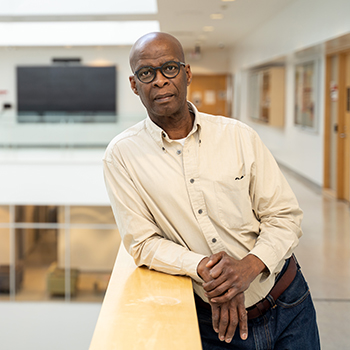Overview
The Jean Augustine Chair in Education, Community & Diaspora is a university chair in the Faculty of Education which aims to advance access, equity and inclusivity to education through community engagement and collaborative action.
First launched in 2008, the chair holder initiates, facilitates, directs and engages in research, educational programs, and community partnerships which are culturally responsive and relevant to the educational and social needs, interests and aspirations of Black and other racialized community members – both those inside and outside of the university for whom marginalization and racialization act as barriers to the achievement of their educational and career ambitions.
Our Mission is to research and knowledge mobilization endeavours on Black and African-descended communities, the chair seeks to:
- Foster an understanding of the diverse cultural and educational needs of students.
- Facilitate leadership on matters of access, equity, inclusivity and social justice;
- Strengthen university-community partnerships and engagement; and,
- Build educational and social capacity among students, junior scholars and community members.
Our vision is to provide educational and occupational access and equity for marginalized youth; the implications of suburban “urbanization” for young people; the complementary and contradictory nature of sports in the schooling and educational attainments of racialized students; community-centered approaches to learning, identification/identity pertaining to race, ethnicity, gender, class, and immigrant status.
The Current Chair
Carl E. James holds the Jean Augustine Chair in Education, Community & Diaspora in the Faculty of Education at York University where he is also the Equity Advisor to the Dean; and for 3 years before, he was the Senior Advisor on Equity and Representation in the Office of the Vice President of Equity, People & Culture. In addition to teaching in the Faculty of Education, Carl holds cross-appointments in the Graduate Programs in Sociology, Social and Political Thought, and Social Work. He has served as Affirmative Action, Equity & Inclusivity Officer (2006-2020); was the founding Director of the York Centre on Education & Community (2008-2016), and Director of the Graduate Program in Sociology (2007-2008). A Distinguished Research Professor, James is known for his mentorship of students and colleagues…

Fundraising for the Jean Augustine Chair in Education continues, and we welcome your support! Donate here. Thank you for your consideration.

